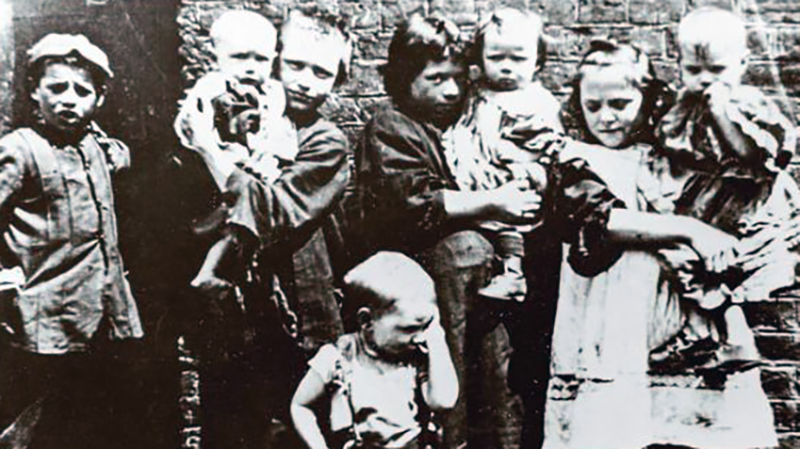Voices Unheard: Exploring Stigma of Children in Care through History to Modern Day

Discover Dr Annie Skinner's insights on the historical stigma faced by children in care. Listen to her explore 19th-century biases and advocate for inclusive welfare policies on Oxford Brookes Unscripted.
In a thought provoking discussion on the Oxford Brookes Unscripted podcast series, Dr Ellie Beeman, Public and Community Engagement Coordinator at Oxford Brookes University, talked with Dr Annie Skinner, a research fellow and social historian in the School of Education, Humanities, and Languages about her research on stigmatisation of children in care. Annie’s work delves into the history of care and stigma, focusing on the often-overlooked narratives of children who were committed to care in the 19th century.
Before her academic career, Annie worked as a social worker with children and families, fostering a deep interest in poverty, welfare, and the silenced voices of society. Her research, supported by a Wellcome Trust grant awarded around 2016, involved an exhaustive examination of 6,824 case notes from the Children’s Society archives (1882-1899). This research led to the publication of her book "Behind Closed Doors" in 2021, which juxtaposes official narratives with the personal letters and experiences of the children themselves. Annie’s findings emphasise the under-researched and underrepresented lived experiences of children in care, advocating for the inclusion of these perspectives in contemporary discussions and policies.
Annie provided an insightful overview of the historical perspectives on the stigma associated with children in care. She referenced key definitions of stigma, describing it as a mark of shame or discredit, often leading to social exclusion and limited life chances. Victorian philanthropy, she explained, played a significant role in the stigmatisation, as reformers sought to rescue children from perceived irresponsible parents.
Annie identified three types of stigma that affected children and families in the 19th century and continue to do so today:
- Structural Stigma: Institutional policies based on stigmatising attitudes.
- Public Stigma: Societal opinions shaped by limited information and media portrayals.
- Associative Stigma: Negative perceptions inherited by children from their parents’ societal standing.
Cultural Representations and Societal Biases Annie elaborated on how poverty and social conditions in the 19th century led to stigmatisation. The harsh policies of the 1834 Poor Law Act, for instance, marked poverty as something to be avoided at all costs, often leading families to desperate measures. Charitable organisations, while providing some aid, imposed strict moral standards and eligibility criteria, further marginalising those in need.
The stigmatisation extended to cultural representations, where media sensationalism played a role in reinforcing negative stereotypes. In the 19th century, court cases involving children in care were publicised, with moral judgments and personal details laid bare for public consumption. This not only affected the children but also perpetuated societal biases against impoverished families.
Annie noted that many 19th-century attitudes persist in modern welfare systems. The introduction of the welfare state in 1948 and subsequent legislation aimed to improve conditions, yet entrenched attitudes about the deserving and undeserving poor continue to influence policies and practices. The Children Act of 1989, while progressive, still contains language that implicitly blames children for their circumstances. Annie’s work highlights the critical need for a shift in how we perceive and support children in care. She calls for policies that truly incorporate the voices and experiences of these children, advocating for systemic changes that address both structural and public stigmatisation.
Annie’s research sheds light on the historical and ongoing challenges faced by children in care. By amplifying the voices of those who have been historically silenced, her work provides invaluable insights into the deep-rooted stigmatisation within child welfare systems. As society continues to evolve, it is imperative to address these biases and create a more inclusive and supportive environment for all children.
You can listen to Annie’s podcast episode.
